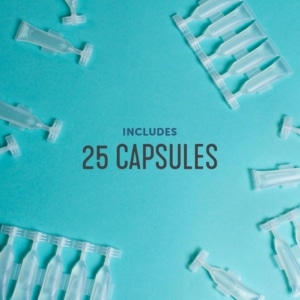Is it just us, or has shopping for groceries never been harder? Between all the confusing industry buzzwords, seals and ratings and overwhelming (and often conflicting!) social media information, it’s hard to know if we’re making the best choices for our families in the grocery store. Never fear, the lazy guide to eating organic on a budget is here! With these three simple tips, you can make huge strides towards a cleaner, more sustainable diet without breaking the bank.
How to eat organic on a budget
1. Optimize your organic purchases
In an ideal world, we’d eat everything organic; it would support responsible farming and undoubtedly pay off in our health and vitality. With that said, one way to make eating organic on a budget possible is by knowing what you really need to buy.
But, before we get into that, it’s important to understand why you’re eating organic in the first place. Fruits and vegetables are sprayed with pesticides to ensure they survive long enough to be sold. Even small amounts of pesticides are linked to some pretty scary health issues including infertility, premature puberty, diabetes and obesity, neurological disorders like Parkinson’s disease, and thyroid dysfunction. They’re so ubiquitous in our food, pesticides have even been detected in human breast milk.
So what foods do you need to avoid? The Environmental Working Group has made navigating the produce section easier with their Dirty Dozen and Clean 15, which give you a great visual breakdown of which items you need to prioritize purchasing organic. One rule of thumb is to examine the item’s skin. Fruits like bananas and pineapples that have thick skins are less likely to test positive for pesticides. Thin-skinned fruit like apples, grapes and berries easily absorb pesticides and should always be purchased organic.
Check out this article for more information on each of these fruits and veggies as well as three less commonly discussed culprits: coffee, wine, chocolate.
2. Meat Matters
Meat is the first item on your grocery list that you should purchase organic. There are nearly 3,000 additives that are approved for use in conventional meat. By purchasing organic meat, you’re consuming meat from animals that have not eaten any food which has been treated with synthetic fertilizers, pesticides, herbicides, sewage sludge or radiation. Their food sources cannot contain any preservatives, additives or GMO’s. And, even better, you’re eating meat with great nutritional perks like better fatty acid ratios and less total fat. Grass fed organic beef is just all around much healthier to eat with its higher levels of CLA and Omega-3.
It makes sense when you think about it. If you’re eating an animal, you don’t want to eat one that’s been eating pesticides and additives that you yourself are doing your best to avoid.
3. Focus your dollars in the right direction
While organic produce is usually more expensive than conventional, there are ways to shop to offset some of the cost. This great blog post from Money Saving Mom has some awesome ideas for eating organic on a budget ($100 a week), including meal planning, coupon and shopping strategies.
Shop for what’s in season! This simple tip is a great way to save – there’s an abundance of a fruit or vegetable when it’s in season and this brings the cost down even when shopping organic. Hit your local farmer’s market or sign up for a produce box delivery, either a local option or one like Farm Box Direct.
Big box clubs like Costco have a surprising amount of local and organic products, and buying in bulk is another great way to bring down cost. Check out these 29 foods you can save money on at Costco
Crowd share! This article explains how one start-up is using “cow-pooling” can help with eating organic on a budget, but also to get better quality meat while supporting farmers and sustainable farming practices. It’s not a new practice, however, and many local farms will also let you purchase a portion of an animal and prep all the cuts for you.
One final note: consider your health and your food worth the investment. At the end of the day, you can invest in your diet now, or you can pay in healthcare later. One study even found that half of all disease in this country is related to poor diet. Yikes!
Whether it’s for washing your fruits and veggies, cleaning your cutting boards or keeping your kitchen sparkling, we’re here with our non-toxic, efficient cleaning system, Force of Nature. Learn more about how we harness the power of simple ingredients to create a cleaner that’s as effective as bleach, but safe enough for a high chair.




